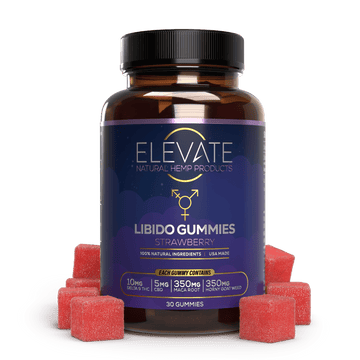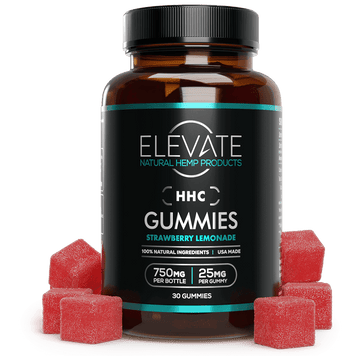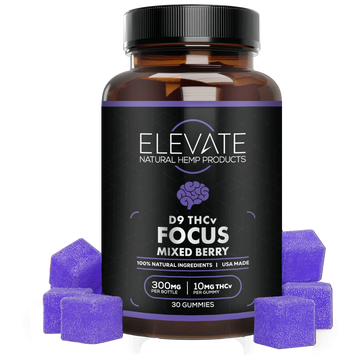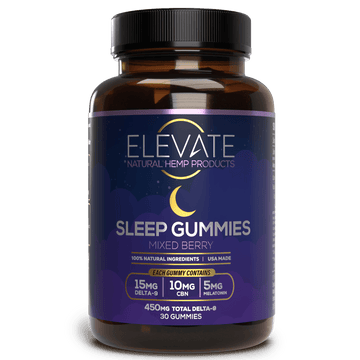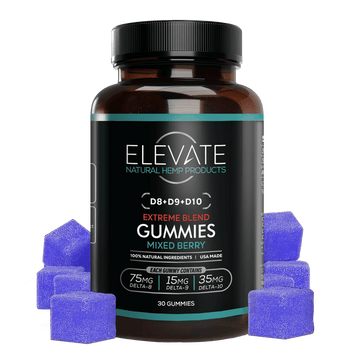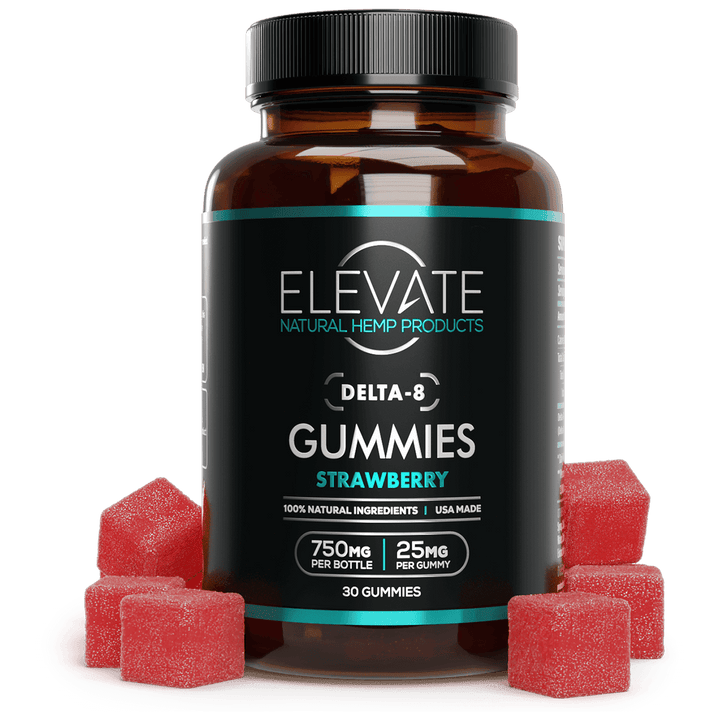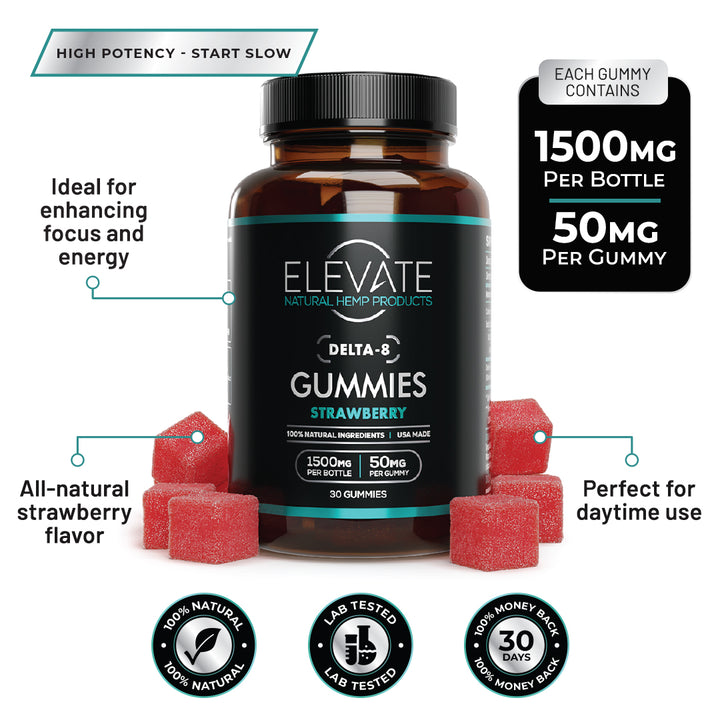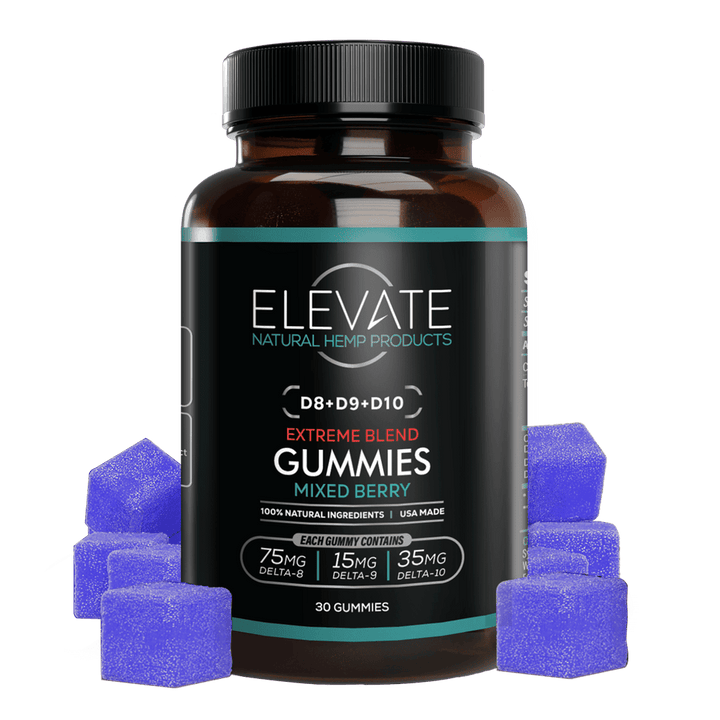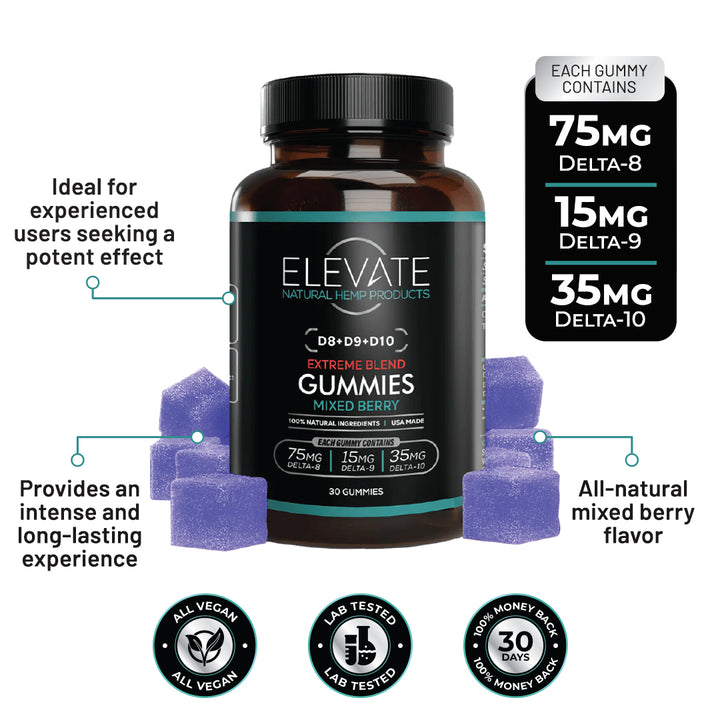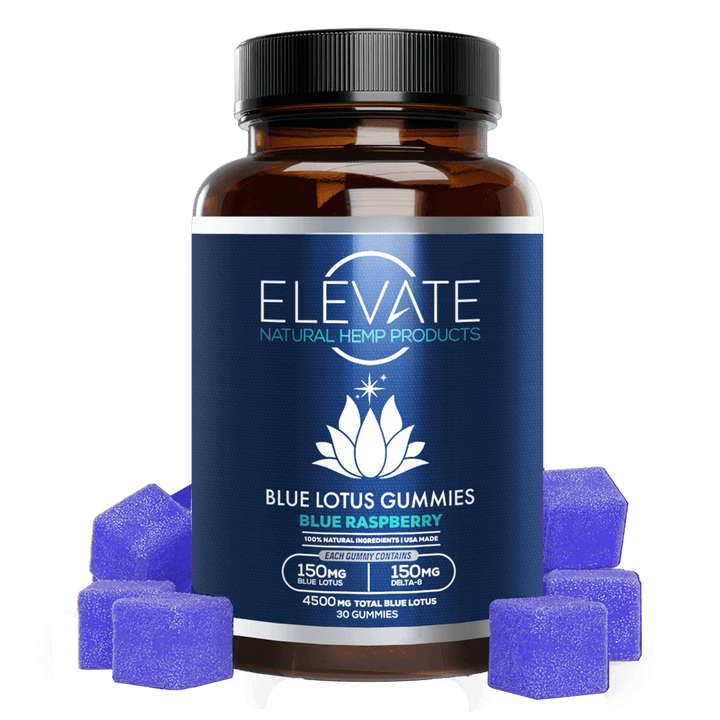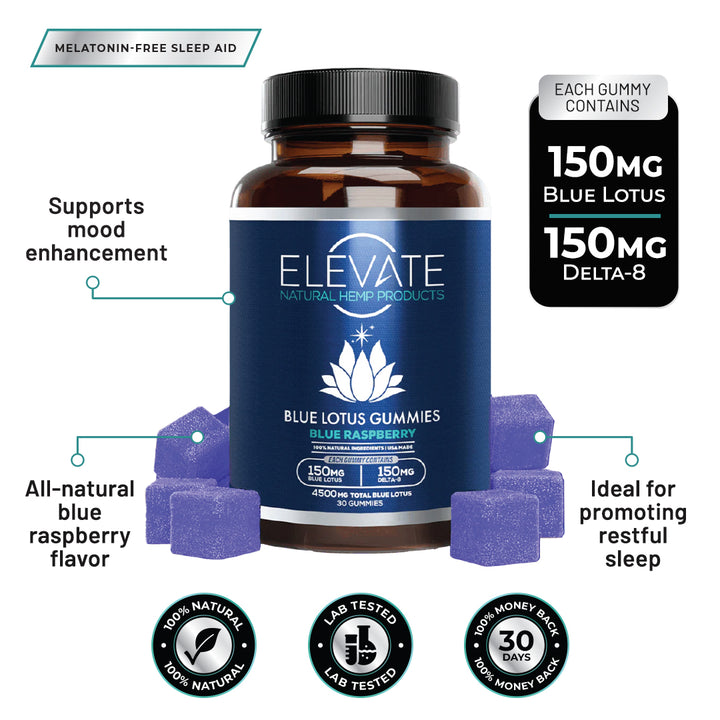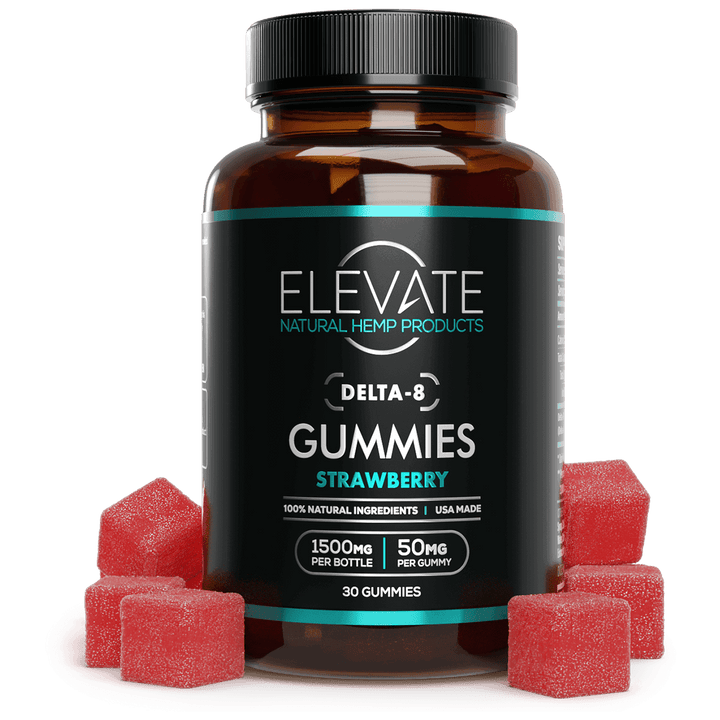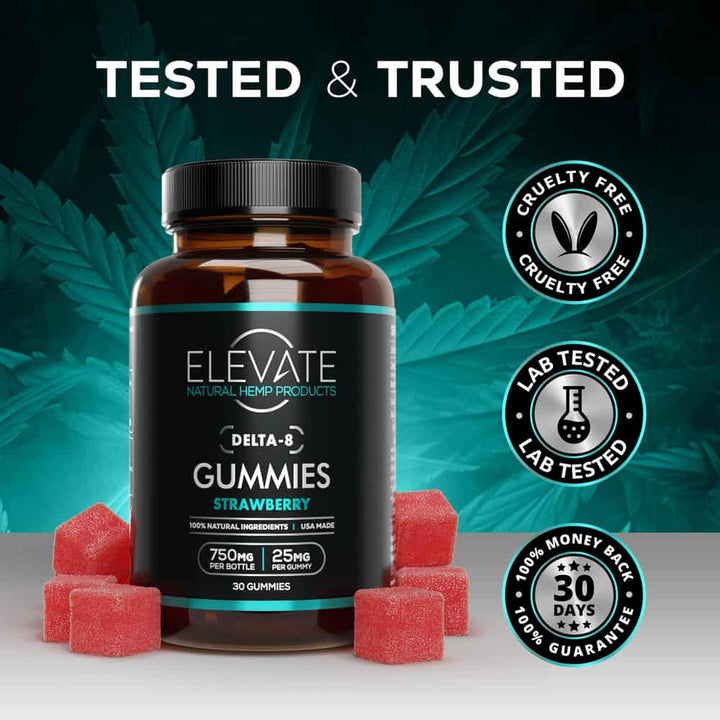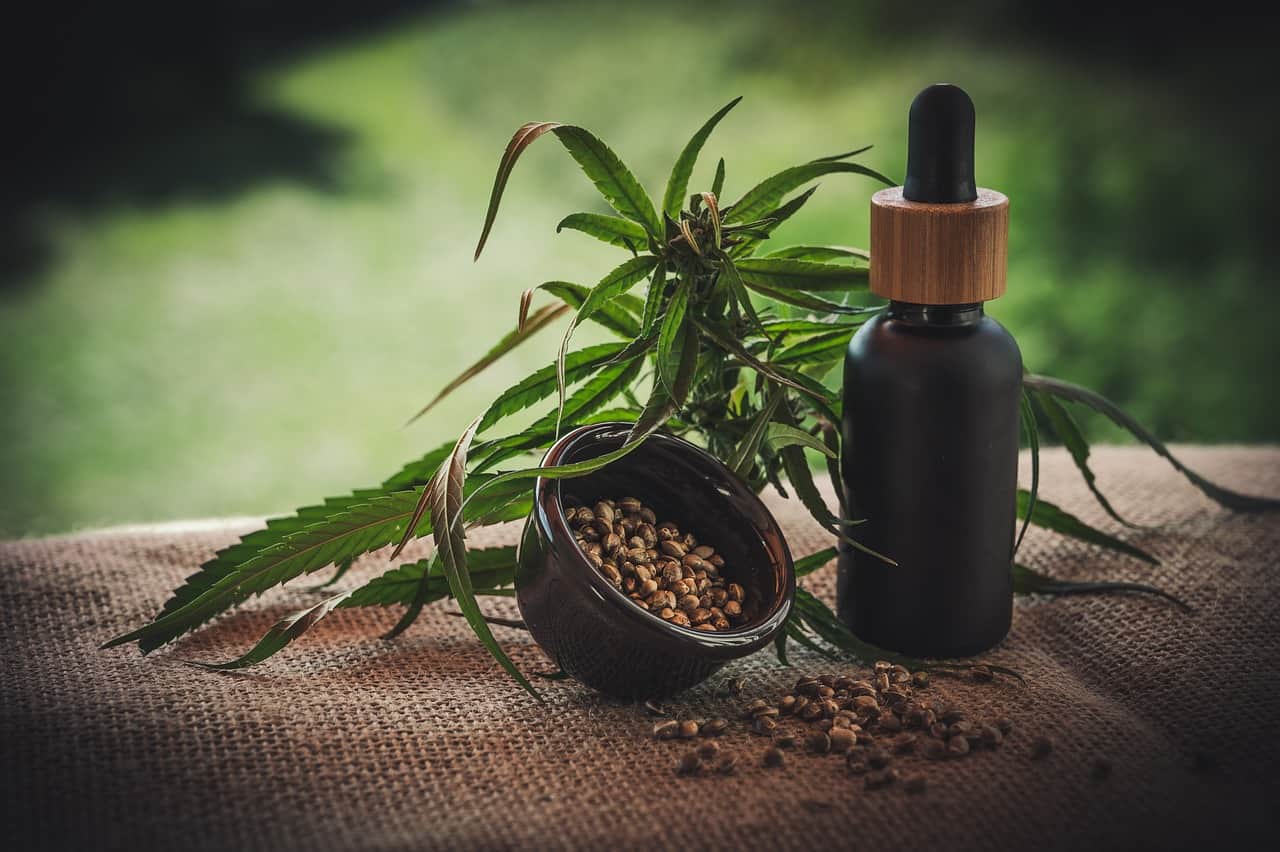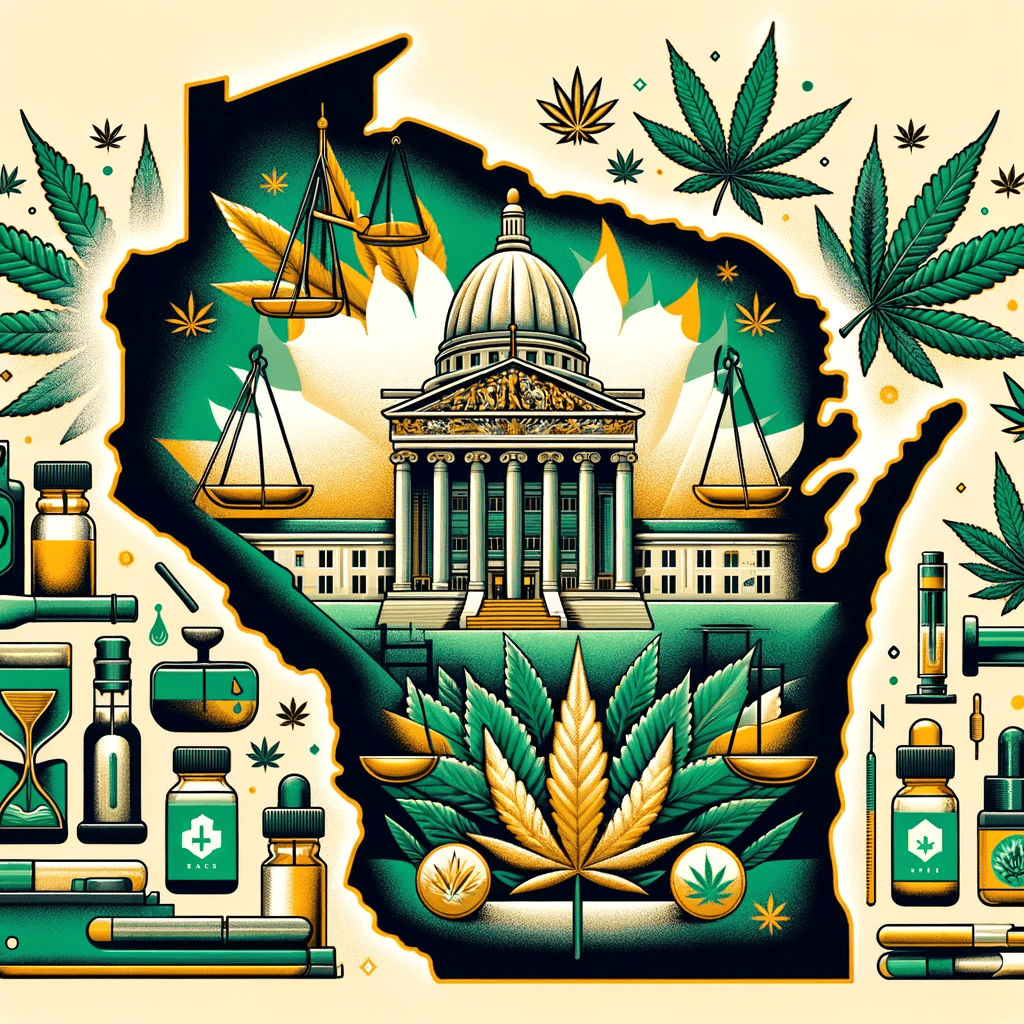Not all cannabinoids are created equal, especially when it comes to appetite. We all know about the classic "munchies" from traditional THC, but what about its popular cousin, Delta-8? As more people try it for its unique benefits, one big question keeps coming up. Does using Delta-8 increase appetite in the same way? Understanding how this specific cannabinoid interacts with your body's hunger signals is key to choosing the right product for your wellness goals. Let's explore what to expect and how its effects stack up against other cannabinoids.
In this blog post, we delve into the relationship between Delta-8 and regulating hunger, examining its impact on the central nervous system and the body’s endocannabinoid system.
Through a detailed exploration of scientific research, we aim to shed light on whether consuming Delta-8 will suppress or increase appetite. This will help consumers to have an understanding of its effects on hunger.
The Endocannabinoid System and Appetite Regulation
To comprehend the connection between Delta-8 and hunger, it is crucial to understand the endocannabinoid system (ECS). This complex network of receptors and chemical compounds plays a vital role in regulating various bodily functions, including appetite control.
By interacting with the ECS, delta-8 THC may influence hunger signals and act as an appetite stimulant.
Delta-8 and Appetite Stimulation
Several studies have suggested that consuming cannabis in the form of delta 8 gummies or delta 8 flowers has the potential to stimulate appetite. The psychoactive effects of delta-8 can activate other cannabinoid receptors in the brain, increasing food intake.
Additionally, Delta-8 may enhance the release of ghrelin, a hormone associated with hunger, thereby promoting feelings of hunger.
Comparing Cannabinoids: Which Ones Affect Hunger?
While Delta-8 is known for its appetite-stimulating properties, it’s not the only cannabinoid that influences hunger. The cannabis plant is complex, containing a wide variety of compounds that interact with your body in different ways. Some, like Delta-8, can trigger the "munchies," while others might have the opposite effect, potentially helping to curb cravings. Understanding these distinctions is key to finding the right product for your specific wellness goals. Whether you're looking to increase your food intake or manage it more effectively, knowing which cannabinoid does what allows you to make an informed choice. Exploring the full spectrum of options can help you tailor your experience to fit your needs perfectly.
This variation is what makes the world of cannabinoids so interesting. It’s not a one-size-fits-all situation. Your body's unique endocannabinoid system will respond differently to each compound. For instance, while most forms of THC are associated with increased hunger, other cannabinoids work on different pathways. By learning about the unique properties of compounds like HHC, CBD, and THCV, you can move beyond a general understanding and start using these plant-based tools with more intention. This knowledge empowers you to select from a diverse range of cannabis products to achieve the specific effect you’re looking for.
Other Appetite Stimulants: HHC and CBG
If you’re looking for an effect similar to Delta-8, it’s helpful to know about other cannabinoids that can also increase your appetite. Pretty much all forms of THC, including the well-known Delta-9 found in marijuana and the increasingly popular HHC, are known to make you feel hungry. HHC (or hexahydrocannabinol) is a hydrogenated form of THC that shares many of its cousin's effects, including the potential to stimulate appetite. Many people find that HHC gummies provide a clear-headed experience while still bringing on that familiar desire to snack, making it a popular alternative for those seeking the munchies without as much intensity.
Cannabinoids That May Reduce Appetite: THCV and CBD
On the other side of the spectrum are cannabinoids that may actually help reduce your appetite. Unlike the THC family, CBD (cannabidiol) does not cause the munchies. In fact, some studies suggest it might decrease appetite, which is why many people incorporate CBD gummies into their daily wellness routines. Another fascinating cannabinoid is THCV (tetrahydrocannabivarin), sometimes nicknamed "diet weed." Research indicates that THCV can reduce hunger and increase feelings of fullness. For those looking to manage cravings, products like THCV gummies offer a unique option that works against the typical appetite-stimulating effects associated with cannabis.
Cannabis for Appetite in a Medical Context
Beyond general wellness, the ability of cannabis to stimulate appetite plays a crucial role in a medical context. For individuals dealing with serious health conditions, a lack of appetite can be a major obstacle to recovery and maintaining quality of life. Severe appetite loss can lead to weight loss, malnutrition, and a weakened immune system, complicating treatment and recovery. In these situations, the "munchies" are not just a side effect but a desired therapeutic outcome. Medical cannabis has become recognized as a safe and effective tool for encouraging food intake for those who need it most.
For many patients, traditional appetite stimulants can come with unwanted side effects or may not be effective enough. Cannabis offers a natural alternative that can gently but effectively restore the desire to eat. This is particularly important for people undergoing treatments like chemotherapy or managing chronic illnesses that suppress hunger. By interacting with the body's endocannabinoid system, certain cannabinoids can help override the signals that cause appetite loss, making food seem more appealing and helping patients get the vital nutrition their bodies need to heal and stay strong during challenging health journeys.
Supporting Patients with Specific Health Conditions
For patients managing illnesses like cancer, HIV/AIDS, or other long-term conditions, maintaining a healthy appetite is fundamental to their overall health. Treatments for these conditions can often cause nausea and a complete loss of interest in food, making it difficult to maintain body weight and strength. This is where medical cannabis can be incredibly supportive. By stimulating hunger, cannabinoids like Delta-9 THC can help patients eat more consistently. This ensures they get the calories and nutrients necessary to tolerate treatments better, fight infections, and improve their overall sense of well-being. Using products like Delta 9 gummies can be a simple and effective way to help restore a healthy appetite.
Research on Cancer, HIV/AIDS, and Crohn's Disease
The therapeutic potential of cannabis for appetite stimulation is supported by growing scientific evidence. For example, research from 2022 highlights the promise of medical cannabis for increasing appetite in cancer patients undergoing treatment. Similarly, it has long been used to help combat the wasting syndrome associated with HIV/AIDS, where severe weight loss can occur. Patients with conditions like Crohn's disease, which affects the digestive system, also often struggle with appetite and nutrient absorption. For these individuals, cannabis can not only help stimulate hunger but also soothe other related symptoms, making it a valuable component of their care plan.
Delta-8 and Weight Gain
The appetite-stimulating properties of delta-8 raise questions about its potential impact on body weight.
While some individuals may experience weight increases due to increased food consumption, it is essential to note that delta-8 does not solely determine weight. Factors such as overall diet, exercise, and individual metabolism also play crucial roles in regulating weight.
Delta-8 and Weight Loss
Contrary to the common belief that cannabis products inevitably lead to weight gain, some research suggests that Delta-8 may help you lose weight. However, more research is needed to understand the mechanisms behind this potential effect and its long-term impact on weight loss.
While existing research provides valuable insights, it is important to recognize the need for further investigation into the effects of Delta-8 THC on appetite. More research with larger sample sizes and controlled conditions can better understand the relationship between delta-8 THC and hunger.
Delta-8 and Healthy Eating
For individuals concerned about the potential increase in appetite associated with Delta 8, making mindful food choices can be beneficial. Opting for healthy snacks and incorporating a balanced diet can help manage hunger and weight loss while enjoying the potential benefits of Delta-8 THC hemp-derived products.
Munchies and Delta-8
One common question among Delta-8 users is whether delta-8 can make you hungry, leading to the infamous “munchies” often associated with cannabis use. Let’s explore some ways to prevent or manage the delta-8 munchies.
What Influences the Intensity of the Munchies?
Not everyone who uses Delta-8 will find themselves raiding the pantry. The intensity of the munchies can vary quite a bit, and it often comes down to a few key factors. How you choose to consume Delta-8, your own unique body chemistry, and the specific compounds in the product all play a significant role in whether you’ll feel a slight craving or a full-blown snack attack. Understanding these influences can help you better predict and manage your experience, ensuring you can enjoy the benefits without any unwanted surprises.
Consumption Method: Edibles vs. Vaping
The way you consume Delta-8 can make a big difference in how it affects your appetite. If you opt for edibles, like our Delta 8 gummies, you might notice more intense and longer-lasting munchies. This is because edibles are processed through your digestive system, leading to a delayed but more prolonged effect that can last for several hours. In contrast, vaping or smoking Delta-8 provides a much quicker onset, but the effects, including any appetite stimulation, tend to fade more rapidly. So, if you’re concerned about managing cravings, your consumption method is the first thing to consider.
Personal Tolerance and Body Chemistry
Your body is unique, and so is your reaction to cannabinoids. How Delta-8 affects your hunger is heavily influenced by your personal body chemistry, metabolism, and tolerance level. If you’re new to Delta-8, you might experience its effects differently than someone who uses it regularly. Two people can take the exact same product and have completely different responses when it comes to appetite. This variability is perfectly normal and highlights the importance of starting with a low dose to see how your body personally responds before you shop for more.
Why Cannabinoid Profiles Matter More Than Strain Names
You might have heard that "indica" strains give you the munchies while "sativa" strains don't, but the science doesn't fully back this up. What matters more is the product's specific cannabinoid profile. For instance, some cannabinoids may actually suppress appetite. Products containing THCV or CBD might have a different impact on hunger compared to those with high concentrations of Delta-8 or Delta-9 THC. Instead of relying on strain names, it’s more helpful to look at the complete profile of the product, like our THCV Gummies, to get a better idea of its potential effects on your appetite.
Prevent Delta-8 Munchies
While it is difficult to eliminate the possibility of experiencing munchies when consuming delta-8, there are several strategies you can employ to manage the increased hunger.
First and foremost, planning to have healthier snacks and more food readily available can help curb unhealthy food choices. Opting for fruits, vegetables, or protein-rich snacks can satisfy your hunger while providing essential nutrients.
Additionally, staying hydrated throughout the day can help reduce the intensity of the munchies and prevent overeating. Incorporating mindfulness techniques into your routine, such as mindful eating and meditation, can also help you make informed food choices.
If you plan, stay hydrated, and make informed decisions about your food intake, you can manage the delta-8 munchies and fully enjoy the potential benefits it offers.
The Benefits of Microdosing
If you're interested in the appetite-stimulating properties of Delta 8 but want to avoid feeling overwhelmingly hungry, microdosing might be the perfect strategy for you. This approach involves taking a very small amount of a product, which can help you find a sweet spot where you experience the gentle benefits without the intense psychoactive effects. For many, this means a mild increase in appetite that feels manageable rather than an urgent need to eat everything in sight. By using smaller doses of Delta 8 gummies, you can achieve a more controlled experience, allowing you to enjoy your food without going overboard. It’s a great way to stay in tune with your body’s signals while still getting the effects you’re looking for.
Using Products That Combine THC and CBD
Another effective way to manage the munchies is to look for products that pair THC with CBD. These two cannabinoids work together to create a more balanced effect. CBD is known for its ability to temper some of the more intense effects of THC, which can include a ravenous appetite. When you use a product that contains both, you can still get the therapeutic benefits you want from Delta 8 while CBD helps keep the munchies in check. Products with a balanced ratio of CBD to THC often provide a smoother, more mellow experience. You can also try taking CBD gummies alongside your Delta 8 to create your own customized, balanced routine.
What Effects Does Delta-8 Have on the Human Body?
Delta-8 THC, like regular THC (delta-9-tetrahydrocannabinol), interacts with the endocannabinoid system in the body. This system regulates various physiological processes, including appetite, improved mood, pain, and stress response.
When delta-8 binds to the receptors in the brain and body, it can produce an array of effects. These receptors may help you feel relaxed, experience pain relief, reduce anxiety, and potentially increase feelings of hunger.
Insights from Scientific Research
While many people share stories about getting the munchies, it’s helpful to look at the science to understand what’s actually happening in your body. Researchers have been exploring how cannabinoids like Delta-8 interact with our internal systems, and their findings offer a clear explanation for why you might find yourself reaching for a snack after enjoying a Delta-8 gummy. These studies point to specific biological mechanisms that directly influence our feelings of hunger, turning a common experience into a fascinating look at how our bodies work.
Key Findings from Animal Studies
Some of the most compelling evidence for Delta-8’s effect on appetite comes from animal studies. One notable study conducted on mice found that even very small doses of Delta-8 THC led to a significant increase in food consumption. Over a short period, the mice ate 16% more, and in a longer study, that number jumped to 22%. This suggests that Delta-8 is a potent appetite stimulant. The researchers also discovered that this effect could be blocked by a specific drug, indicating that Delta-8 works through very specific pathways in the body to trigger hunger signals, rather than just causing a general change in behavior.
The Role of the CB1 Receptor and Neurotransmitters
So, what are those pathways? It all comes down to your body’s Endocannabinoid System (ECS), which helps regulate functions like mood, sleep, and appetite. Delta-8 THC interacts with this system by binding to receptors, particularly the CB1 receptor. When Delta-8 activates the CB1 receptor, it sends a signal to your brain that it’s time to eat. This is the same basic mechanism behind the classic "munchies" associated with cannabis. Other cannabinoids, like Delta-9 and HHC, also activate this receptor, which is why they can produce similar effects on hunger and create that familiar craving for a satisfying snack.
How Delta-8 Causes Appetite Stimulation
The exact mechanism by which delta-8 stimulates appetite is not fully understood. However, it is believed that activating cannabinoid receptors, particularly the CB1 receptors in the brain, plays a crucial role.
When delta-8 binds to these receptors, it may increase the release of certain neurotransmitters, such as dopamine, which can stimulate appetite. Additionally, delta-8 may enhance the sensitivity of taste buds, making food more enjoyable and increasing the desire to eat.
Understanding how Delta-8 interacts with the endocannabinoid and central nervous systems is key to comprehending its influence on hunger.
It is crucial to note that individual responses to Delta-8 may vary, and consulting with a healthcare professional is always recommended before incorporating any hemp-derived product into your routine.
What Are the Advantages of Delta-8?
Despite the potential for increased appetite, Delta-8 offers many benefits. Its psychoactive effects are generally milder than regular THC, making it a more suitable choice for individuals who prefer a gentler experience.
Delta-8 has shown promise in managing pain, reducing anxiety, and promoting relaxation, making it a popular choice among those seeking therapeutic relief. Moreover, delta-8 is legal in many states where regular THC remains prohibited, providing an alternative for individuals looking to explore the benefits of cannabis.
Tips for Safe and Responsible Use
The Importance of Sourcing from Reputable Brands
When you're exploring Delta-8, where you get your products from matters—a lot. The quality and purity of a product directly influence its effects, including how it might interact with your appetite. Because the market is full of options, it's crucial to choose brands that are transparent about what's in their products. Reputable companies always provide third-party lab reports, often called Certificates of Analysis (COAs), which verify that the product is free from harmful contaminants and contains the amount of Delta-8 advertised. This ensures you're getting a safe and effective product, allowing you to better understand how it interacts with your body's endocannabinoid system. For example, our Delta 8 gummies are rigorously tested to guarantee you get a consistent and high-quality experience every time.
General Dosing Advice for Different Individuals
Figuring out your ideal Delta-8 dose is a personal process, as everyone's body chemistry is unique. Factors like your tolerance, metabolism, and what you're hoping to feel—whether it's general relaxation or specific support for things like getting better sleep—all play a role. The best approach is to start with a low dose and gradually increase it over time. For instance, you might begin with half a gummy and wait at least an hour or two to see how you feel before considering more. This "start low and go slow" method helps you find your sweet spot without overdoing it. As research suggests, individual responses to Delta-8 can vary, so listening to your body is key. If you have any underlying health conditions or concerns, it's always a good idea to chat with a healthcare professional before adding any new supplement to your routine.
Conclusion: Do You Get The Munchies With Delta 8?
The impact of Delta-8 on appetite is a complex and multifaceted topic. Some individuals may experience an increase in appetite, leading to munchies, although the severity may vary depending on the individual and the dosage consumed.
Others may find that Delta-8 acts as an appetite suppressant or has no significant effect on their appetite. Nonetheless, the potential therapeutic benefits of this novel cannabinoid, such as pain relief and anxiety reduction, make it an appealing option for those seeking alternative remedies
Frequently Asked Questions
So, will Delta-8 automatically give me the munchies? It’s very likely, but not a guarantee for everyone. Delta-8 is known to stimulate appetite by interacting with your body's endocannabinoid system, which is the same mechanism that causes the classic munchies. However, your personal body chemistry, tolerance, and even how you take it—like edibles versus vaping—can influence how strong the effect is.
I'm looking for something to help increase my appetite. Is Delta-8 my only option? Not at all! If you're looking for an appetite boost, most forms of THC will have a similar effect. Cannabinoids like Delta-9 and HHC also interact with the same receptors in your brain that signal hunger. This gives you a few different products to explore depending on the kind of experience you're looking for.
What if I want the benefits of cannabis without getting super hungry? You're in luck. Not all cannabinoids trigger the munchies. THCV, for instance, has been studied for its potential to actually reduce appetite. CBD is another great option that doesn't stimulate hunger and is often used for general wellness. You can look for products that feature these specific cannabinoids if managing cravings is a priority for you.
If I take Delta-8 and start feeling hungry, how can I keep it from getting out of control? A little planning goes a long way. Before you take your Delta-8, have some healthy snacks like fruit or protein-rich options ready to go. Staying hydrated with plenty of water can also help manage the intensity of the cravings. You could also try microdosing—taking a smaller amount—to get the desired effects with a much milder impact on your appetite.
Why does Delta-8 make you hungry, anyway? It comes down to how Delta-8 interacts with your body's internal regulatory system, called the endocannabinoid system. It activates specific points, known as CB1 receptors, in your brain. When these receptors are activated, they send signals that essentially tell your body it's time to eat, which can also make food seem more enjoyable.
Key Takeaways
- Expect an Appetite Increase with Delta-8: This cannabinoid works by activating the CB1 receptor in your brain, which is the same mechanism that triggers the classic "munchies" and sends hunger signals.
- Choose Cannabinoids Based on Your Goals: If you want to avoid hunger, compounds like THCV and CBD may help reduce cravings. For appetite stimulation, Delta-8, Delta-9, and HHC are effective choices.
- Control Your Cravings with Smart Strategies: You can manage the munchies by starting with a low dose, pairing Delta-8 with CBD, or having healthy snacks ready. Your consumption method and personal tolerance also play a big role.

